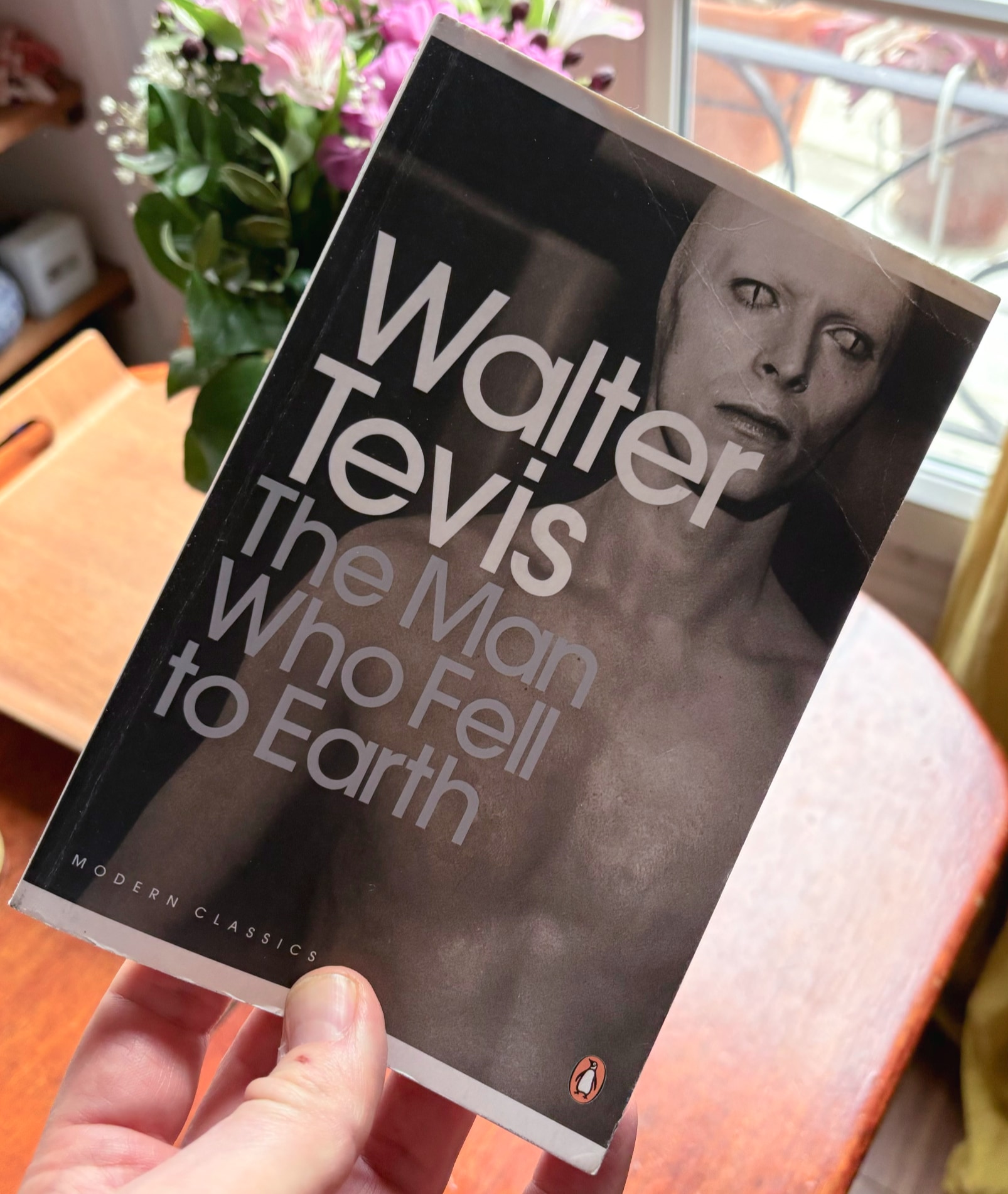Tuesday Book Club: The Man Who Fell to Earth
01 April 2025, Filed in: Book Club | 20th Century Fiction | Classic American Fiction | Classic Science Fiction | Books Adapted into Films

This week’s Tuesday Book Club pick is The Man Who Fell to Earth by Walter Tevis—a strange, sad and quietly brilliant novel about being alone in a world that doesn’t understand you. It’s also the book behind the 1976 film starring David Bowie, which has been on our minds.
If you’ve ever felt like an alien in your own life—or just want to spend some time in a beautifully weird and thought-provoking story—this one’s for you.
What’s The Man Who Fell to Earth about?
The story follows Thomas Jerome Newton, a being from a dying planet who arrives on Earth in human form, hoping to save his people by building a spaceship and returning with help. He’s brilliant, isolated and endlessly vulnerable—less the classic sci-fi invader and more a lost soul trying to make sense of a world full of noise, greed and longing.
Tevis (also the author of The Queen’s Gambit) doesn’t hit you over the head with metaphors, but they’re there—about loneliness, ambition, addiction and what it costs to be different. The writing is clean, subtle and deeply human.
Why it feels right this week
There’s something about Newton’s quiet collapse and his endless search for connection that feels very Bowie—especially the Bowie of the mid-'70s: fragile, otherworldly, visionary—and that resonates with the sense of confusion many are feeling in response to the events of our era. Whether or not you’ve seen the film, the book stands on its own as a thoughtful, moving piece of speculative fiction.
And at under 150 pages, it’s a short read that leaves a surprisingly long echo.
Let’s talk about it
Have you read The Man Who Fell to Earth? How do you see Newton—as a symbol, a warning or just a man trying to make it through? And if you’ve seen Bowie’s version, how do the book and film speak to each other?
We’re chatting over at #TuesdayBookClub and #TheManWhoFellToEarth on X (formerly Twitter) and Bluesky. We’d love to hear what you think.
